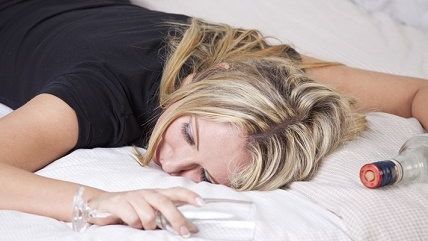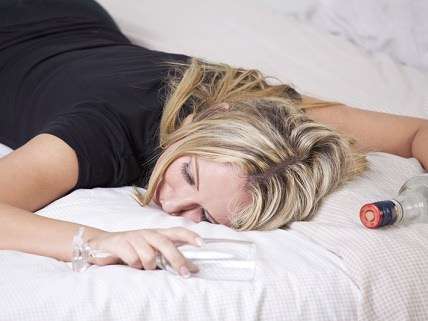Not All Drunk Sex Is Rape: What WaPost Study Gets Wrong (and Right)
Binge drinking is the real problem


The Washington Post recently offered intellectual support for the oft-cited—and much-maligned—claim that 1 in 4 or 1 in 5 women are raped in college. While the studies that arrived at that number have drawn considerable criticism, The Post's latest poll asked 1,000 men and women at more than 500 different colleges about their sexual history and determined that about 25 percent of the women had indeed been sexually assaulted.
So the statistic holds true, after all? Not exactly.
A closer look at the poll suggests to me that WaPost got the same number as the previous studies because it worded the questions the same way. As The Washington Examiner's Ashe Schow and National Review's David French pointed out, the poll used "unwanted sexual conduct" and "sexual assault" interchangeably:
David French of National Review pointed out that these two words are not synonyms, and can actually include "behaviors that are not only not criminal, but may not — depending on the circumstances — even constitute unlawful sexual harassment (which the Supreme Court has said requires proof of conduct so 'severe, pervasive, and objectively offensive that it effectively bars the victim's access to an educational opportunity or benefit')."
Further, as French noted, "unwanted" is also not a synonym for "without consent."
"It's far broader, able to encompass a variety of circumstances, up to and including entirely legal misunderstandings and legal (though immoral) emotional manipulation," French wrote. "In fact, it is this very confusion between consent and desire that often makes campus sexual assault proceedings such a nightmare for all parties."
The Post's examples of possible conduct (which include "forced kissing, touching of private parts, grabbing, fondling, rubbing up against you in a sexual way") are similar to the questions asked in two other studies used by activists to claim campus sexual assault is such a big problem that we must enact draconian measures to convict more men. The category is so broad that the 20 percent figure includes everything from a kiss born from a misunderstanding to a forced rape.
The poll also lists "drunk" as one of the reasons a person can be incapable of giving consent or refusing sex, alongside "asleep, drugged, passed out, and incapacitated." But women who are merely drunk are able to give consent; it's only when alcohol consumption renders a participant incapacitated that consensual sex becomes rape.
It's true that alcohol can cause people—both men and women—to consent to sex when they otherwise would not. Alcohol lowers inhibition, and lets people do things they will later regret. Certainly, drinking too much of it is a precondition in the vast majority of sexual assault disputes. But I'm not convinced the poll takes these nuances into account.
Though I dispute The Post's characterization of the extent of the sexual assault crisis, the poll does an excellent job highlighting the prime roll that alcohol abuse plays in campus misbehavior:
In interviews with dozens of students who responded in the poll that they had experienced unwanted sexual contact while in college, most said they had been drinking before the incident. That's consistent with the poll's finding that two-thirds of survivors said they had been drinking just prior to their assaults.
Some said they had been too drunk to know or articulate what they wanted and what they didn't want. Some said they were so intoxicated they lost awareness, later finding they had been raped while blacked out.
Others said they suspected they had been assaulted but were too intoxicated to remember the details and never found out for sure. …
Students are more likely to consider alcohol a problem on campus than sexual assault, according to the poll.
Emphasis mine. Maybe we should listen to these students, who seem to agree with me that a campus binge-drinking culture is the real problem. One of the students polled by WaPost has even stumbled upon the libertarian solution:
Adam Newman, a 2014 graduate of the University of North Texas who responded to the poll, said stiffer alcohol enforcement might lead to more drinking.
Perhaps the solution is to lower the drinking age, he said, so young people learn how to drink responsibly before they get to college and getting drunk loses some of its forbidden-fruit allure.
"The appeal of 'Ooh, parental supervision is gone, we're going to get smashed' is not there," he said.
We don't know precisely how many college women are raped each year, but should take steps to decrease that number, regardless. Unfortunately, the pathetic solutions being offered by both the activist left and the neo-Victorian right—think affirmative consent, and keeping women away from fraternity parties—will merely raise additional complications. The better solution is the libertarian one: abolishing the federal drinking age. This approach tackles the root problem, takes incentives into account, and—unlike the other ideas—would result in more, not less, individual freedom.


Show Comments (289)